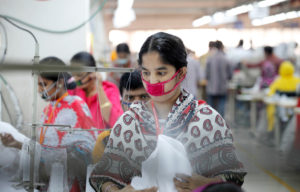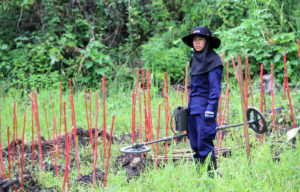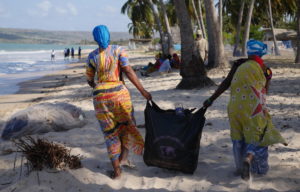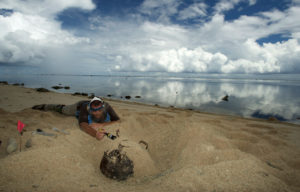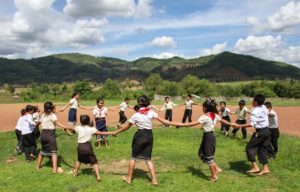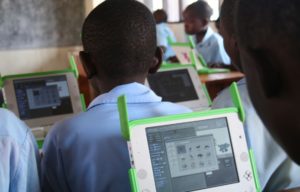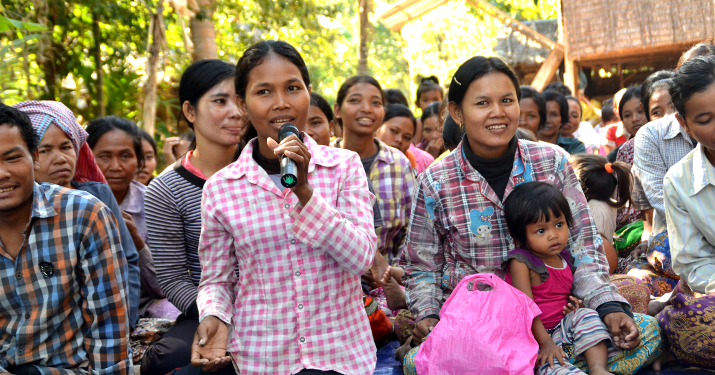
Photo: ADDA
Cambodian villagers win back their land
More than 300 families in a small village in Cambodia have peacefully regained their rights to their forest, after many years of conflict.
Share
About ADDA
ADDA is a Danish NGO that works with agricultural development in Vietnam, Cambodia, and Tanzania. You can read more about the organisation and its projects at their website.
Other categories
Region: Asia
Theme: Civil Rights, Food
The village of Bak Nim is located in a remote area of Cambodia, and the area has been the scene of conflict for many years, regarding the rights to use the land.
The area was originally covered by jungle, but for decades it became known as a destination for settlers and fortune seekers. The number of ‘land grabbings’ increased, with individuals cutting down the forest in order to turn a profit from lumber and agriculture.
To stop land grabbing and illegal deforestation, a group of local residents started registering parts of the Bak Nim area as a forest community. This was seen as a good strategy for protecting the land from being taken over by outsiders.
Justice needs knowledge
But from the outset, the villagers made several technical mistakes in the procedure of claiming the land for their community. They were not in contact with the local authorities, and the necessary analysis of problems and consequences of establishing the forest communities was not carried out, and the villagers were not consulted in designing the community management plan.
Even worse, the villagers had not claimed their rights to use the resources of the forest, where they for generations had gone for firewood, construction materials, berries, honey, and other things for personal consumption.
Due to these mistakes, the result of the otherwise successful registration of the forest communities in 2004 turned out to be the opposite of what the locals intended – the villagers of Bak Nim actually lost their rights to the land.
“We used to have no clear understanding of the process and the consequences of registering our plots of land in the forest communities”, says Muth Thorn, group leader of a self-help group in Bak Nim.
Calm words solved the conflict
But despite this setback, the village finally managed to re-gain their land, thanks to a project that gave them better knowledge of rules and regulations. The project is called CISOM, which stands for ‘Empowerment of Civil Society in Oddar Meanchay, Cambodia’. The initiative is supported by the Danish organisations ADDA and CISU.
The project offered training all members of the self-help groups in basic legal principles, including property rights. At the same time, local decision makers in the community studied democratic decision making and the basis for local decision making in Cambodian law.
Last but not least, the participants learned how to do advocacy – techniques for how to stand up for your rights and be heard. Part of this is how to gain influence by actively participating in public meetings and express your views during the decision making process. The overarching principles are to remember to show all speakers and audience respect, stating facts and problems in a calm manner, and finally the most important step: To make your request clearly and to the point.
These advocacy techniques proved very useful for the villagers of Bak Nim. After thorough preparations with support from ADDA, in cooperation with the local partner RCEDO (Rural Community and Environmental Development Organisation), the villagers were finally ready for a big public meeting with the authorities the 26th of August 2014.
During the meeting, representatives for the villagers asked to speak, and put their requests directly to the provincial governor, They asked that the local community be given better access to using the forest, and be given permission to gather natural resources there. in addition, they asked to have the communal forests officially registered and clearly marked.
Governor kept his promise
The meeting resulted in the governor assuring the locals that their traditional rights would be respected and protected. The following month, the Cambodian Ministry of the Interior announced that the authorities would grant an area of 700 hectares to the inhabitants of Bak Nim, and that the villagers’ property rights to this land would be secured. The promise was kept, and the villagers have now received their official statement for the rights to the land, which has been distributed among more than 300 families.
The success story of Bak Nim is now being used as a model to solve similar conflicts and achieve progress in other parts of the province.
